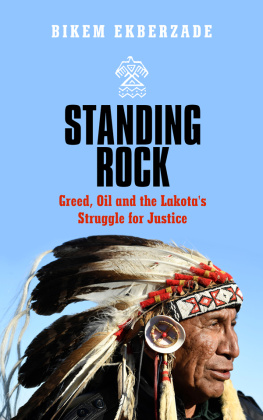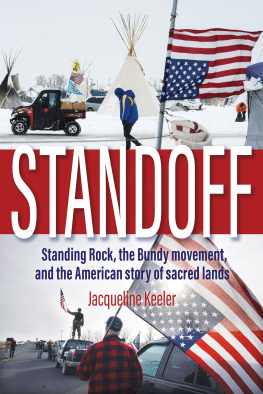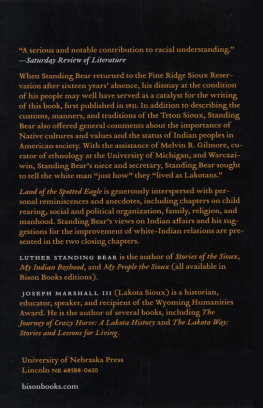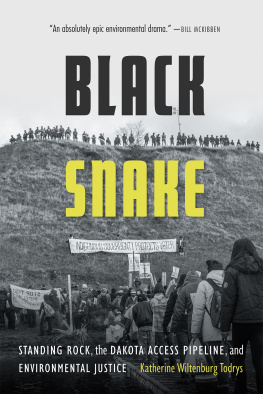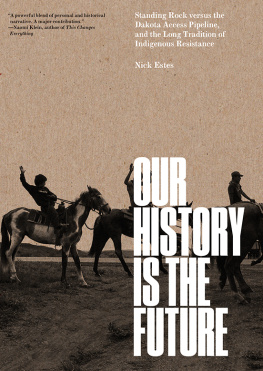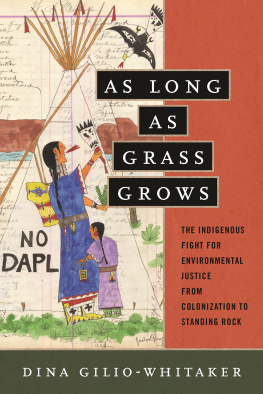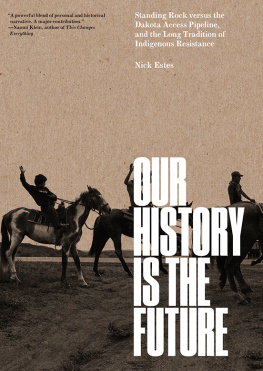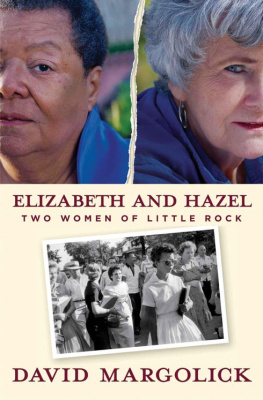
Brings memories of freedom, and offers a humane view of the past in Indian Country.
Leonard Peltier, political prisoner, activist and member of the American Indian Movement
Lest we forget the heart-wrenching resistance of the Sioux and their allies at Standing Rock, Bikem Ekberzade meticulously sets their story in its historic context. This is important, valuable work at a time when Indigenous people all over the world are at the forefront of the struggle for ecological justice.
stn Bilgen-Reinart, author of Night Spirits: The Story of the Relocation of the Sayisi Dene
Shows how the confrontation at Standing Rock fits a centuries-long pattern of oppression, yet also marks the emergence of a growing and increasingly effective Native American resistance to corporate greed and environmental injustice.
Michael Brune, Executive Director, Sierra Club
Weaves a much needed and moving story. The book comes alive through the eloquent voices of its Native American organizers, and Ekberzade creates an intimate window into the lives of her subjects. Standing Rock may have its roots in hundreds of years of history but more than ever, this book matters now.
Donatella Lorch, former foreign correspondent for the New York Times
The story of Standing Rock embodies a long, sad history of violence and broken promises by the US government. Ekberzade carefully documents this history and illuminates it with the words of living Native Americans. An important contribution to our understanding of the USs shameful and often appalling abuse of Americas original peoples.
Nick B. Mills, journalist and author of Karzai
About the author
B IKEM E KBERZADE is primarily a photojournalist and documentary photographer, who specialises in forced migration in conflict and post-conflict zones. She has photographed and written two books on refugees, Illegal (2006) and West-end of the Border (2010), which were part of her documentary photography project The Refugee Project (http://therefugeeprojectweb.wordpress.com). She has written or contributed to several books and articles, and her photographs have been published by several international newspapers and magazines. Ekberzade is from and is currently based in Turkey.
STANDING ROCK
Greed, Oil and the Lakotas Struggle for Justice
Bikem Ekberzade

Standing Rock: Greed, Oil and the Lakotas Struggle for Justice was first published in 2018 by Zed Books Ltd, The Foundry, 17 Oval Way, London SE11 5RR, UK.
www.zedbooks.net
Copyright Bikem Ekberzade 2018
The right of Bikem Ekberzade to be identified as the author of this work has been asserted by her in accordance with the Copyright, Designs and Patents Act, 1988
Typeset in Bulmer by T&T Productions Ltd, London
Index: Bikem Ekberzade
Cover design: Steve Marking
Cover photo Helen H. Richardson/Getty
All rights reserved. No part of this publication may be reproduced, stored in a retrieval system or transmitted in any form or by any means, electronic, mechanical, photocopying or otherwise, without the prior permission of Zed Books Ltd.
A catalogue record for this book is available from the British Library
ISBN 978-1-78699-283-3 hb
ISBN 978-1-78699-282-6 pb
ISBN 978-1-78699-284-0 pdf
ISBN 978-1-78699-285-7 epub
ISBN 978-1-78699-286-4 mobi
Contents
Without the help of a large number of people, this book would have been a fleeting thought. I would hereby like to thank Julie Mardin, who not only accompanied me on my trip across the Great Plains, but also, when crisis hit, helped me keep things in perspective; ule nsel Ekici, with her academic gusto, who was always helping me gain access to archival articles and ample research material in a matter of minutes, and, despite her own workload, without ever turning down any of my overwhelming requests; Natalie Stites, who, despite the massive time difference was always there whenever I needed help locating information, got confused or just needed fresh leads; Marianne Hirsch, who helped me gain unlimited access to the shelves of Columbia Universitys Butler Library, especially the rare books section; all the people who have spared a considerable amount of their time to tell their stories: LaDonna Tamakawastewin Allard, Douglas White Bull, Julie Garreau, Tammy Joy Granados, Bobbi Jean Three Legs, Foxy Jackson, Will, Chris and Alton; and academics ahan Kzl, Joe Bonni and Alessandra Giannini, for providing me with invaluable information on epigenetics, archaeological surveys and global warming, respectively. I am indebted to them and to all my other friends, who showed their support whenever my confidence in finishing this book ran short. But above all, I owe gratitude to my mother, my only family, who patiently waited for me and on me so I could finish writing this story and file it on time. Also, a big thank-you to those at Zed Books for believing in this book, taking it up on a moments notice: specifically Ken Barlow, for his editorial suggestions, and Dominic Fagan. Another big thank-you to Ellen White for her meticulous edits, suggestions, revisions and most of all her patience. Finally and most importantly, I would very much like to thank all the authors, researchers and academics out there who are supporting and feeding open access, as I also believe information should be open and free for all.
In April 2016, a cry of distress rose from the Standing Rock Sioux Reservation. Perhaps because of the desperation it exhibited, or perhaps as payback for the years of injustice suffered by the Lakota people, this cry found answer in an international response that soon became an expansive avalanche. Despite centuries worth of breached treaties, continuous forced migration and attempts at assimilation, the Sioux Nation, it seemed, still had one more fight left in them. Soon they would find out that, in this fight at least, they were not alone. People from all over the world, people who felt helpless in the face of large, powerful corporations that were exploiting their much-needed and diminishing resources, rallied to the Lakota peoples cause, as did environmentalists, who had been warning the world for decades about the potential disasters awaiting the human race if we did not take care of our planet.
Once people took notice of what was happening at Standing Rock, forgotten human rights abuses and stories of massacres, buried within the thick pages of historical documents written by the colonial masters, started emerging. The Lakota, like most Native Americans, owned an oral tradition: culture, language, history, stories and prophecies had been passed down from generation to generation. Despite the hardships and oppression endured by families stuck in poverty-stricken, suicide-laced white flag of peace were slaughtered mercilessly and at times hatefully, while women and children were shot or clubbed to death, their scalps taken by US soldiers as war trophies.
These past cruelties were undertaken for profit, to open up land for settlers so that speculators could reap handsome returns, or to extract precious minerals such as gold from places sacred to tribes, such as the Black Hills. In the present day, meanwhile, to feed Corporate Americas insatiable appetite for oil and gas, the Federal Government was once again using physical and psychological coercion against unarmed civilians this time, including its own citizens. It was also showing the world exactly what it was capable of when confronted with peaceful protest.
Over the course of the United States colonial history, native tribes were thrown together in what were effectively open-air prisons, with little to no understanding on the oppressors part of the cultural differences among these peoples. Once confined, attempts by the Federal Government to assimilate them began, and would continue for generations. The process, especially when tribes in the Great Plains were concerned, generally went like this: break tribal unity; erase the role of the tribal chiefs; ban cultural rituals and native languages; and, last but not least, break up families by forcing them to send their children to boarding schools, so that the Indian in them might be killed to save the man.
Next page
